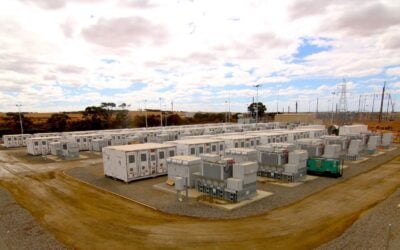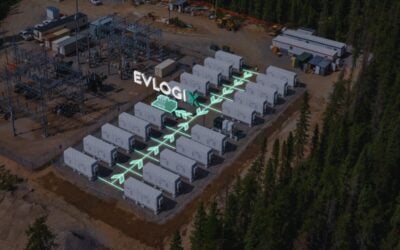Image: Enel.
US-based energy storage project developer and software company Demand Energy has been acquired by Italian utility company Enel.
Enel subsidiary Enel Green Power North America has taken a 100% stake in the company, which Enel head of global renewable energies Francesco Venturini said was a “complementary partner and innovator” that would help strengthen the utility’s position in the “growing battery storage market”. Financial details of the deal were not disclosed.
Enjoy 12 months of exclusive analysis
- Regular insight and analysis of the industry’s biggest developments
- In-depth interviews with the industry’s leading figures
- Annual digital subscription to the PV Tech Power journal
- Discounts on Solar Media’s portfolio of events, in-person and virtual
Or continue reading this article for free
Venturini said that working with its newly acquired entity would leverage Enel’s expertise in system integration, adding it to Demand Energy’s proprietary software platform and energy storage products.
Demand Energy has executed some 24 projects behind-the-meter, around 3MW/9MWh of installed capacity to date. In addition to being recently involved in several projects in New York including a megawatt-scale microgrid at a low-income housing development as well as delivering systems for commercial and industrial customers and a project in Costa Rica reported in December, the company is known for DEN.OSTM (‘Distributed Energy Network Optimisation System’). This is the company’s software platform for intelligently controlling energy management resources.
Importance of software
Software control platforms like DEN.OS can allow system operators to aggregate disparate resources into virtual power plants across networks, as well as giving visibility into the life cycle of an individual system and its performance, using scalable cloud-based analytics.
The importance of software as a key component of energy storage systems has been recognised in the value chain, not least of all by market analysts such as Navigant Research. Navigant’s Alex Eller recently told Energy-Storage.News that software revenues could reach US$3.4 billion by 2025, from their current valuation of around US$201.2 million at present. Eller also said that, going forward, energy storage software could be developed in-house by larger companies in the space or bought in from third-party providers.
Meanwhile, IHS analyst Sam Wilkinson has said that software is the “most important thing” in determining the success or failure of an advanced energy storage project, as opposed to hardware, which he described as “almost irrelevant” compared to an “intelligent management” system.
Another major European utility, E.On, invested in Greensmith, a US-based system integrator and energy storage software developer in 2015, while last year Korean engineering giant Doosan acquired US software start-up 1Energy Systems.
Enel Green Power has an installed capacity of 36GW of renewables in operation, while other divisions of the parent group have executed projects in its native Italy that include grid-scale energy storage trials with the likes of NEC Energy Solutions.






